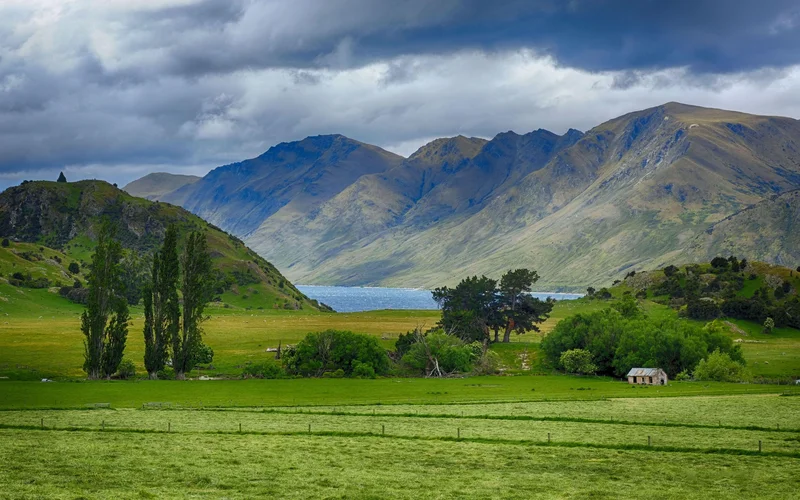New Zealand Wildlife Park Euthanizes Lions: What Happened?
Alright folks, buckle up, because this one hits hard, then maybe offers a sliver of hope. We're talking about the Kamo Wildlife Sanctuary in New Zealand. A place that, for a brief moment, was famous thanks to a TV show about "The Lion Man," but has now become a symbol of something far more complex: the struggle to balance compassion, economics, and the very real needs of animals in captivity. It's a heartbreaking situation, no doubt. Two elderly lions, Imvula and Sibili, have already been euthanized due to untreatable health conditions.
But here's where it gets complicated, and where, just maybe, we can find a reason for cautious optimism.
See, the sanctuary is closing down, a victim of financial woes. The owner, Bolton Equities, put the property up for sale. Initially, the plan was to euthanize all seven lions. Can you imagine? Seven majestic creatures, their lives cut short not because of disease or old age alone, but because… well, because of money. It feels wrong, doesn’t it? It is wrong. New Zealand wildlife park to euthanize 7 lions, citing financial troubles: "No real options left"
Then, a glimmer. A few individuals have expressed interest in buying the facility and continuing to care for the lions. This isn’t a done deal, not by a long shot. The timeframe is short, the situation uncertain. But it’s something. It's a chance, however slim, for these lions to live out their days in relative peace.
A Second Chance, or a Stay of Execution?
The problem, as the sanctuary operator Janette Vallance rightly points out, is that relocating these lions isn't a viable option. They're old, their needs are complex, and moving that many big cats is a logistical and ethical nightmare. The sanctuary itself says that caring for these animals is expensive, requiring feed, supplements, experienced staff, compound and grounds maintenance, and vets. They even put out an appeal for unwanted cows or horses to feed the cats, which consume about three cows' worth of meat each week.
Now, here's the part that really grabbed me: the outpouring of public support. The sanctuary's Facebook page was flooded with messages pleading for a reprieve. Former staff members hoped the sanctuary would reconsider the euthanasia decision. This is where I see the heart of humanity shining through. We, as a species, have a deep-seated connection to these animals. We recognize their inherent value, their right to exist.

But is that enough? Is hope enough to overcome the very real financial and logistical challenges? And what happens if a sale doesn't go through? Are we back to square one?
This whole situation reminds me of the early days of the internet. Remember when people were saying the internet was just a fad? Remember how skeptical everyone was? Now look at us. We're on the verge of a potential paradigm shift in how we treat captive animals. We're starting to realize that these aren't just commodities; they're living, breathing beings with needs and desires.
But, and this is a big but, we also have a responsibility to ensure their well-being.
If the sanctuary is sold, the new owners must commit to providing the highest standards of care. We can't simply transfer the problem to someone else. We need transparency, accountability, and a genuine commitment to the lions' welfare. And if a sale doesn't happen? Then we, as a global community, need to step up. We need to find a way to provide these animals with a dignified end to their lives, whether that means supporting another sanctuary, funding their care in place, or, yes, even considering humane euthanasia as a last resort.
The Ministry for Primary Industries (MPI) has stated that the decision to euthanize the cats lies with the owners, and that they will have an animal welfare inspector onsite to verify that it is done appropriately. Biosecurity New Zealand Deputy Director General Stuart Anderson emphasized that euthanasia must be carried out humanely and in line with animal welfare law. All of this is important, but it feels… cold, doesn’t it? Legalistic. Where’s the passion? Where’s the empathy? Troubled New Zealand wildlife park euthanizes two lions, fate of five more unclear
It's easy to sit here and judge, but the truth is, there are no easy answers. This situation is a complex web of economics, ethics, and emotions. What’s important is that we learn from it. We need to find sustainable models for wildlife sanctuaries, models that prioritize animal welfare above all else. Maybe that means smaller sanctuaries, specializing in fewer species. Maybe that means greater government support. Maybe that means a fundamental shift in how we view animals in captivity.
A Roar of Hope, or a Whisper of Regret?
This situation isn’t just about seven lions in New Zealand. It’s about all captive animals, everywhere. It's a call to action. It's a reminder that we have a moral obligation to protect these creatures, to provide them with a life worth living. And if we fail? Well, then we fail ourselves. But I refuse to believe that's the end of the story. I believe that, even in the face of heartbreak, we can find a way forward. A way to ensure that the roar of the lion continues to echo, not as a symbol of captivity, but as a testament to our compassion.
Tags: new zealand
Concordium: Why Smart Money is Taking Notice
Next PostDoordash Stock Sinks: What Happened and Why?
Related Articles
